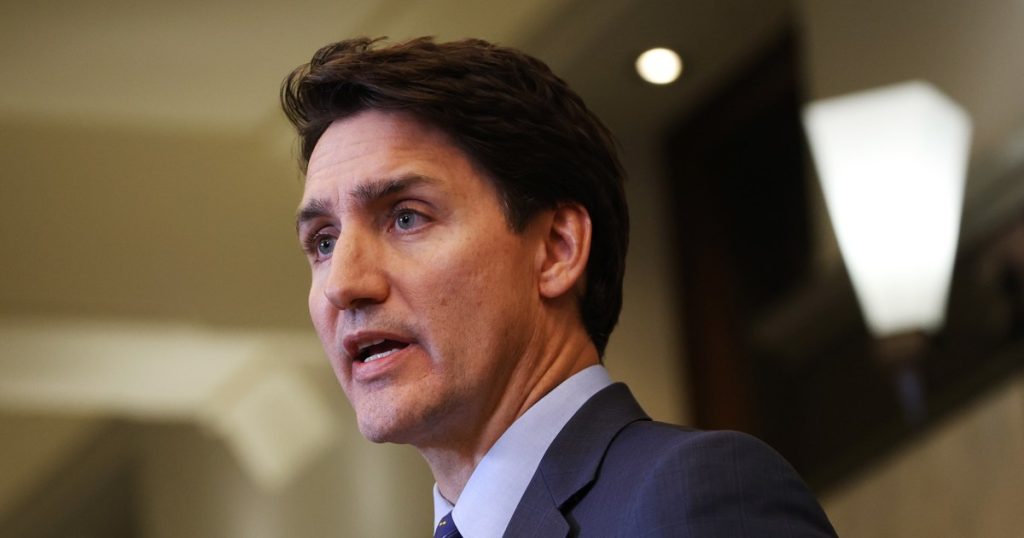Canadian Prime Minister Justin Trudeau made strong remarks accusing India of interfering in Canada’s sovereignty by allegedly targeting Indian dissidents in the country. This comes after Canada expelled six Indian diplomats for their alleged involvement in the murder of a Sikh separatist leader in Canada. Trudeau called India’s actions a “horrific mistake” and stated that the Indian government had overstepped its boundaries in Canadian affairs. India’s foreign ministry responded by denying the allegations and placing the blame for strained relations on Trudeau.
Trudeau’s comments mark the culmination of a yearlong dispute between Canada and India that has significantly damaged bilateral relations. The Canadian leader’s remarks were made during an independent inquiry into foreign interference in Canadian politics, where he criticized India for its aggressive actions. India, in turn, rejected the allegations, stating that Canada had not provided any evidence to support its claims against Indian diplomats. The exchange has heightened tensions between the two countries and raised concerns about the future of their relationship.
In response to India’s actions, Trudeau hinted at the possibility of taking further steps to ensure the safety and security of Canadians. While he did not provide specifics, it is clear that Canada is considering additional measures to address the alleged interference by Indian diplomats. India, on the other hand, expelled six Canadian diplomats in a tit-for-tat move, escalating the diplomatic clash between the two nations. The situation remains tense as both countries stand firm in their positions.
The dispute between Canada and India has highlighted the complexities of international relations and the challenges of managing diplomatic conflicts. The allegations of interference and the subsequent expulsions of diplomats have strained the relationship between the two countries and raised questions about the future of their interactions. Both Canada and India are standing their ground, with Trudeau accusing India of overstepping its boundaries and India denying the allegations. The impact of this conflict on bilateral relations remains to be seen.
Trudeau’s strong remarks against India demonstrate his commitment to upholding Canadian sovereignty and protecting the safety of Canadians. By speaking out against what he sees as inappropriate interference by the Indian government, Trudeau is sending a clear message that Canada will not tolerate such actions. The expulsion of Indian diplomats and the ongoing dispute serve as a reminder of the importance of maintaining respectful and mutually beneficial relationships between nations. As the situation continues to unfold, it will be essential for both Canada and India to find a resolution that allows them to move forward in a constructive manner.
The fallout from the dispute between Canada and India underscores the need for effective communication and diplomacy in addressing disagreements between countries. Both sides must work towards rebuilding trust and finding common ground to resolve their differences. While tensions remain high, there is an opportunity for dialogue and negotiation to de-escalate the situation and prevent further damage to bilateral relations. As the international community watches closely, the actions of both Canada and India in the coming days will be crucial in determining the outcome of this diplomatic conflict.


